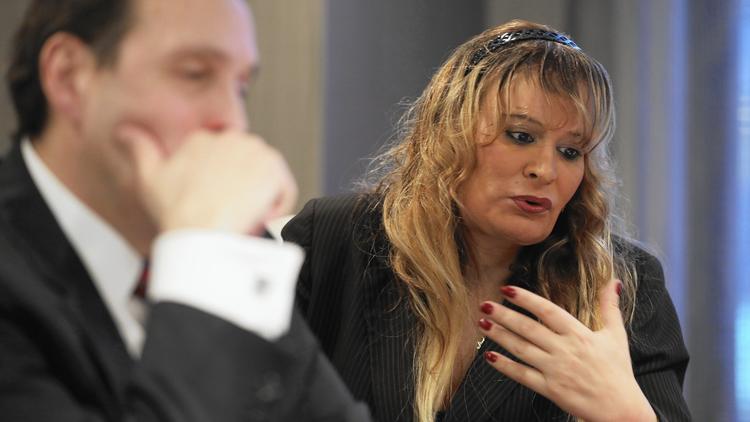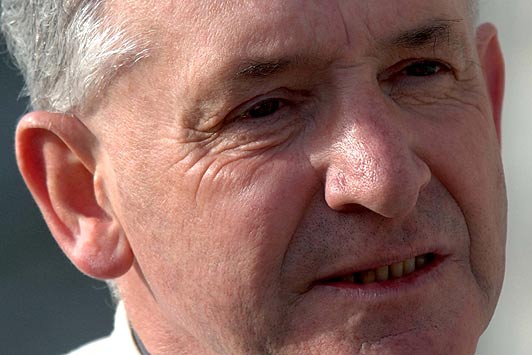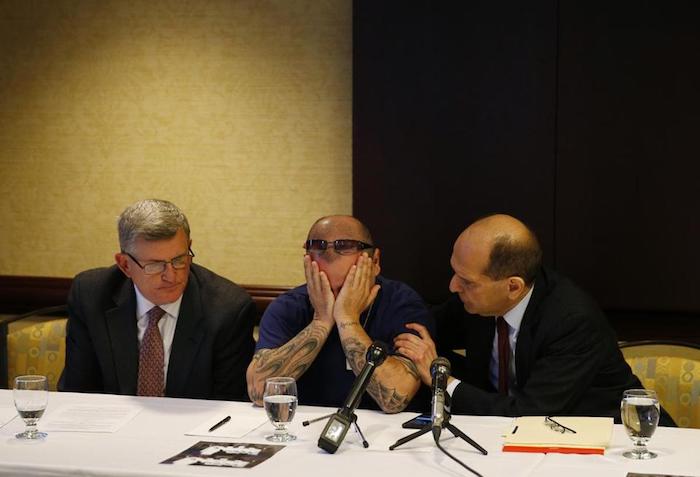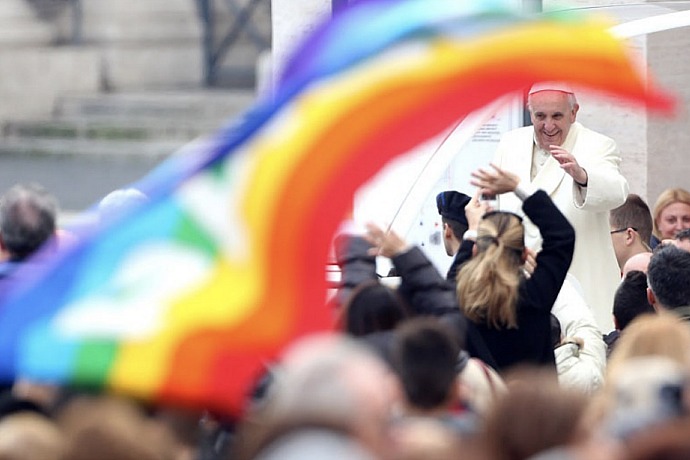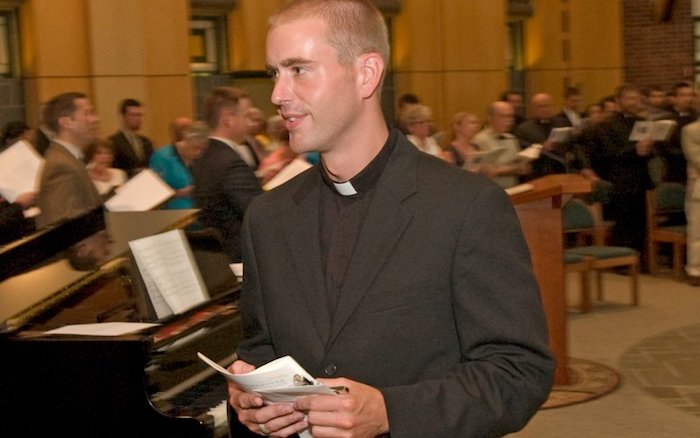Report on historical abuse in 22 church, state and charity-run homes accuses RUC and Catholic hierarchy of serious failings
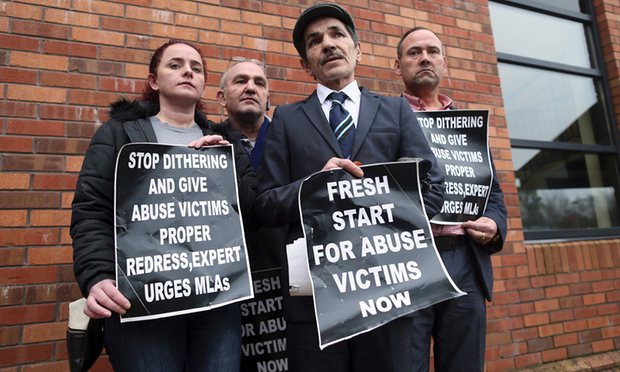
Police were guilty of a “catalogue of failures” over the abuse of boys at a Belfast care home run by a paedophile ring, a comprehensive report into child mistreatment across Northern Ireland has found.
The historical institutional abuse inquiry, established in 2014, found that a Royal Ulster Constabulary (RUC) investigation into sexual abuse at the Kincora care home in east Belfast was “inept, inadequate and far from thorough”.
The report, released on Friday, also accused the Catholic hierarchy in Ireland of ignoring repeated warnings about a serial paedophile, Fr Brendan Smyth, who sexually assaulted and raped dozens of young victims.
The implications of the Smyth scandal and other clerical abuse in the region were so serious that a senior Catholic cleric was due to discuss the findings with the pope later on Friday.
Kincora care home was run by a number of paedophiles whom it was alleged were agents of the state. They included the prominent Orange Order member William McGrath, who was accused of being an informer for MI5 and special branch in the 1970s, spying on fellow hardline loyalists.
At least 29 boys were sexually abused by McGrath, the Kincora housemaster, and others at the home. One boy is said to have killed himself by jumping off a ferry into the Irish Sea in the late 1970s following years of abuse. Three senior staff at Kincora – McGrath, Raymond Semple and Joseph Mains – were jailed in 1981 for abusing 11 boys.
The retired judge Sir Anthony Hart, who chaired the inquiry, said if the RUC had carried out a proper investigation into Kincora many of the victims might have been spared. He said 39 boys were abused byMcGrath and others running Kincora at the height of the Troubles.
But Hart said the notion that the home was a homosexual “brothel” used by the security services to entrap paedophiles to spy on influential political figures was without foundation.
Controversially, he also dismissed the notion that McGrath was a state agent. “We are satisfied that McGrath was never an agent of the state. William McGrath was a sexual pervert who had political views of a bizarre type.”
Hart was extremely critical of a number of individuals who had previously made claims about Kincora, including the former army intelligence officer Colin Wallace, who first raised allegations of a paedophile ring at the home.
The judge said the cooperation of the current Police Service of Northern Ireland was in “marked contrast to the unwillingness of some individuals”.
He stressed that all requests by the inquiry for classified files relating to Kincora were “honoured” by government and security agencies.
Hart said there was “no credible evidence” to support allegations that a paedophile ring including senior British establishment figures had abused children in Kincora. The report had “stripped away decades of half-truths masquerading as facts in relation to Kincora”.
The inquiry, which sat at Banbridge courthouse in County Down for two years, investigated children’s care homes and institutions from the Northern Ireland state’s foundation in 1922 to 1995.
During the Kincora section of the inquiry it emerged that MI5 and MI6 were legally represented at Banbridge. Critics of how the hearing into Kincora had been framed expressed concerns the government would use the Official Secrets Act to prevent the inquiry gaining access to files from MI5 and MI6.
Among the other scandals highlighted in the report was that surrounding Fr Brendan Smyth. He was a paedophile priest whom the Catholic hierarchy kept moving around parishes in both Ireland and the United States long after it knew about his abuse of children in places such as west Belfast.
The report severely criticised the Catholic Church’s behaviour.
“Father Brendan Smyth was able to carry out widespread sexual abuse of children, including some children resident in homes investigated by the inquiry, due to the failure of branches of the Roman Catholic church to properly address his behaviour from before he was ordained as a priest, despite clear warnings,” it said.
“There was repeated failure to assess the risk he posed to children, to confine him to his abbey, to thoroughly investigate allegations of abuse, to notify the police and social services, and to share information between dioceses and report matters to the appropriate civil and ecclesiastical authorities.”
The report also criticised an order of Catholic nuns, the Sisters of Nazareth. Of the homes they ran in Belfast and Derry, it said: “In each of the four homes, some nuns engaged in physical and emotional abuse against children. Emotional abuse was widespread in all homes.”
Hart and his team found that a disinfectant was used in baths in the orphanages. He said there was a significant number of cases of sexual abuse involving priests and lay staff. Many of these incidents were known to members of the clergy, who did nothing to stop them, the report said.
The leader of Ireland’s Catholics, archbishop Eamon Martin, said he would discuss its findings with Pope Francis when he met the pontiff in Rome later on Friday.
He said the report “reminds us that much work remains to be undertaken in this regard”.
Public hearings were held into 22 institutions across Northern Ireland which were run by the state, local authorities, the Catholic church, the Church of Ireland, and other voluntary organisations. Hart’s report runs to 2,300 pages and contains 10 volumes of findings and testimonies.
The NSPCC children’s charity said: “This inquiry has shed light on horrendous and widespread abuse carried out against children in Northern Ireland in the past. Institutions must now be held to account for the prolonged, systematic failings against the children in their care. It is right that the survivors receive the justice they deserve and we support the recommendation for redress.”
Complete Article HERE!

